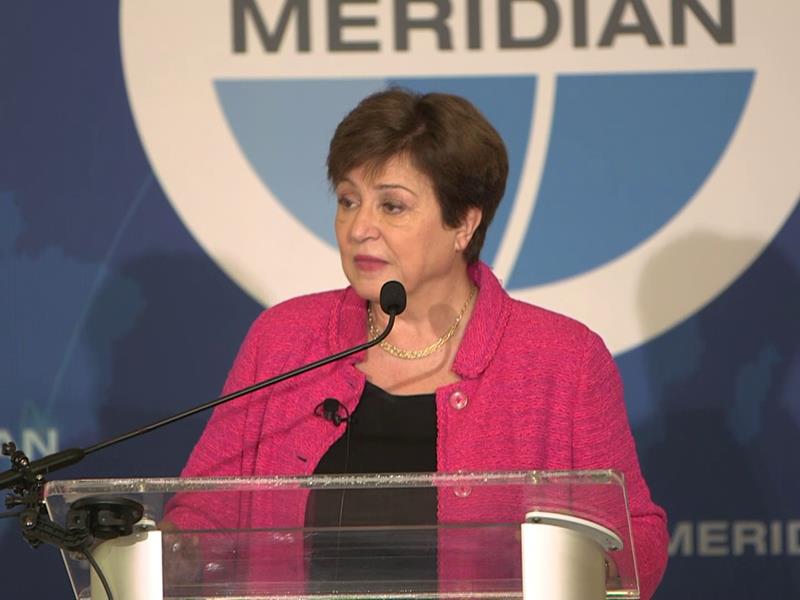IMF / IMF Managing Director 2023 Spring Meetings’ Curtain Raiser Speech

The Managing Director of the IMF announced today (Thursday, April 6, 2023) in her Spring Meetings Curtain Raiser speech that global growth is projected to remain weak by historical comparison in the near and medium term.
“Despite surprisingly resilient labor markets and strong consumer demand, despite the uplift in China, we expect the world economy to grow less than 3% this year,” Said Kristalina Georgieva, Managing Director of the IMF.
To brighten growth prospects, Georgieva highlighted three themes that need to be addressed; fighting inflation and safeguarding financial stability, improving medium-term prospects for growth, and fostering solidarity to reduce global disparities.
On inflation, even as central banks have lifted interest rates at the fastest and most synchronized pace in decades, core inflation has remained stubbornly high—partly because of tight labor markets in many countries.
“Central banks should continue to use interest rates to fight inflation while using financial policies to ensure financial stability. This is the right course of action, so long as financial pressures remain limited. If that were to change, in other words, if financial pressures were to become more prominent, policymakers would face an even more complicated task with difficult trade-offs between their inflation and financial stability objectives and more difficult balancing act of the use of their respectful tools. And this is why our message, and it would come loud and clear during the Spring Meetings is going to be; be vigilant and be more agile than ever.” said Georgieva, speaking to a packed room of diplomats at Meridian International Center in Washington.
On improving growth over the medium-term, The IMF projects global growth to remain around 3 percent over the next five years. This is the IMF’s lowest medium-term growth forecast since 1990, and well below the average of 3.8 percent from the past two decades.
Georgieva urged policy and decision makers to focus on three matters to tackle this issue. Boosting productivity and growth potential through structural reforms and by accelerating the digital revolution, improving the business environment, and boosting human capital and inclusion, stepping up green change to protect our planet and create new economic opportunities, and stepping up international cooperation to reduce the impact of economic fragmentation and geopolitical tension, especially over Russia’s invasion of Ukraine.
“We have done extensive research on the costs of fragmentation, and it is a very, very scary picture. Long term costs of trade fragmentation could be as high as 7% of global GDP, roughly the equivalent of the combined output of Germany and Japan. If we add technological decoupling, then some countries would face losses up to 12% of GDP. And we just published a paper on fragmentation of capital flows, including Foreign Direct Investments, they would be adding another hit on global growth. It’s hard to put in one place the combined impact of all losses but one thing we know for sure, they head in the wrong direction,” added Georgieva.
On fostering solidarity to reduce global disparities, Georgieva said that the IMF has provided nearly $300 billion in new financing for 96 countries since the start of the Covid pandemic and made a plea on behalf of low-income countries to help them handle the burden of debt distress.
“Let me start with debt. About 15% of low-income countries are in debt distress. An additional 45% are near it. About a quarter of emerging market economies are at high risk facing default like borrowing costs. And this has raised the legitimate concern about the potential wave of debt restructuring cases and how to help handle them at a time when current restructuring has proven to be difficult with costly delays,” added Georgieva.
To watch the full speech, click here.





